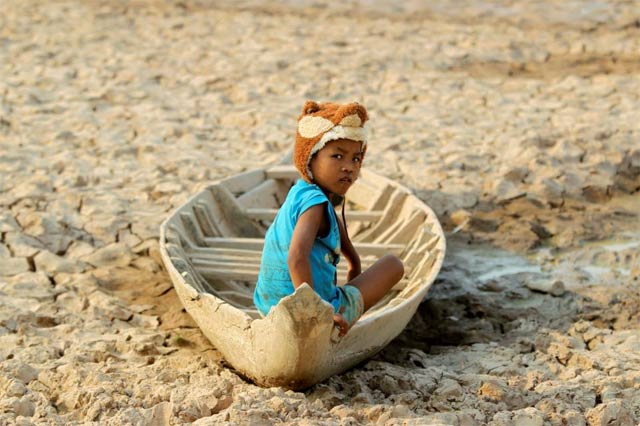
The PMD official also warned that the dry spell would further aggravate the water shortage in the country.
Prolonged dry spell and food security
Vice president of the Asia-Pacific region of World Meteorological Organisation (WMO) Dr Ghulam Rasul told The Express Tribune that since September this year, Pakistan has not received a good amount of rainfall. Neither “good showers” nor “snowfall” is expected in the Northern Areas till January next year. “Though there will be light to moderate rain at isolated places but it will be just enough to fulfil the need,” he said.
Pakistan will have a dry winter in which due to clear skies the day will be warmer and nights will be colder, he said.
“Though PMD has been highlighting the possibility of acute water shortage in the country in the coming months, the authorities concerned have largely ignored these warnings. The severity of the situation will have an impact on the economy as it will affect winter crops. In addition, there will also be a rise in health issues,” he said.
Dr Rasul said that the situation is ‘alarming’.

“At present, however, the water shortage is expected to have an impact on winter crops but in the coming months it is expected that people will face a shortage of drinking water also.”
Soon the water being used from reservoirs for irrigation purposes will be over, according to him. “People will then start pumping groundwater in excessive amounts which will result in its depletion and later cause severe drinking water shortage,” he said.
Country to face dry spell till December, says PMD
The continuous stability in the weather condition will also result in extreme weather events like smog which plays a major role in causing flu, watery eyes, chest infections, among others, he said.
Dr Rasul said that earlier Pakistan had faced severe drought-like situation in 2001 when it prolonged for a year and then in 2009 which extended for three to six months.
Meanwhile, according to the Indus River System Authority (IRSA) officials considering the current ongoing dry spell in the country and water scarcity in the rivers and reservoirs it is expected that the country will face acute water shortage than the earlier announced 17 per cent for Rabi season.
However, if there is no rain till February the situation might worsen as reservoirs will reach a dead level, according to IRSA officials.
Published in The Express Tribune, December 2nd, 2016.






















1714034954-0/WhatsApp-Image-2024-04-25-at-1-48-04-PM-(1)1714034954-0-270x192.webp)






















COMMENTS
Comments are moderated and generally will be posted if they are on-topic and not abusive.
For more information, please see our Comments FAQ